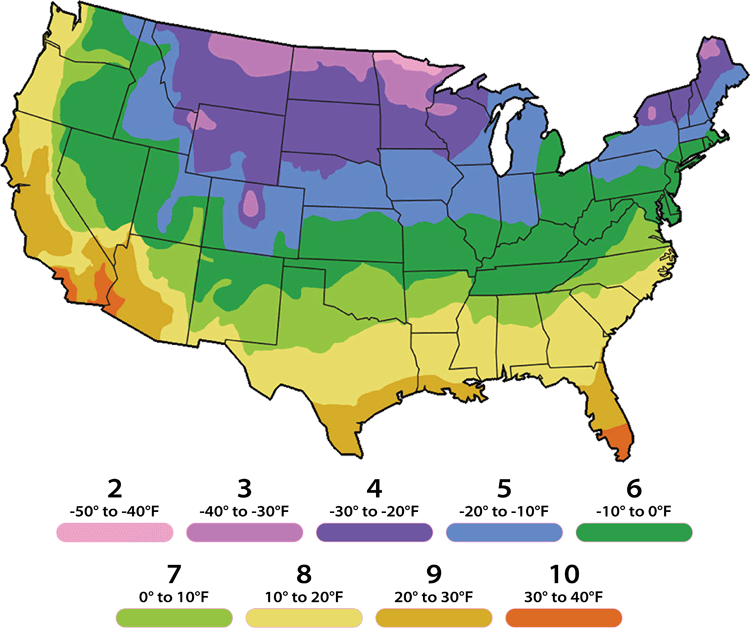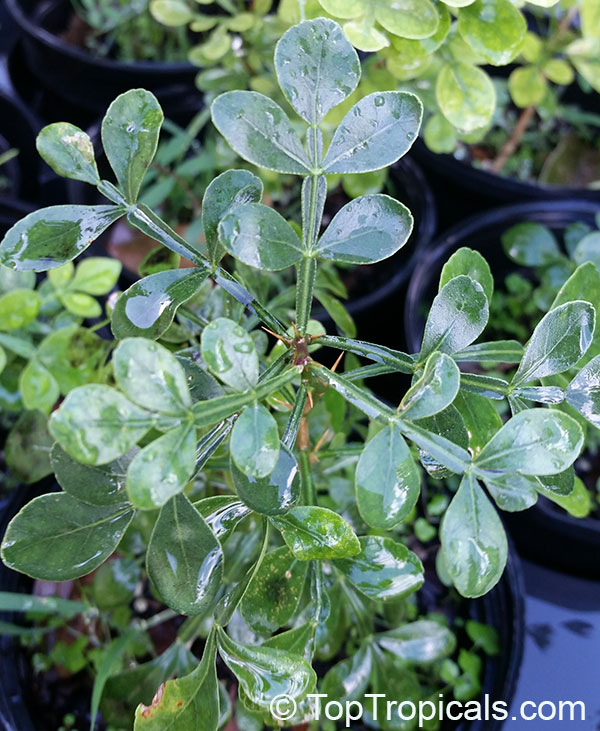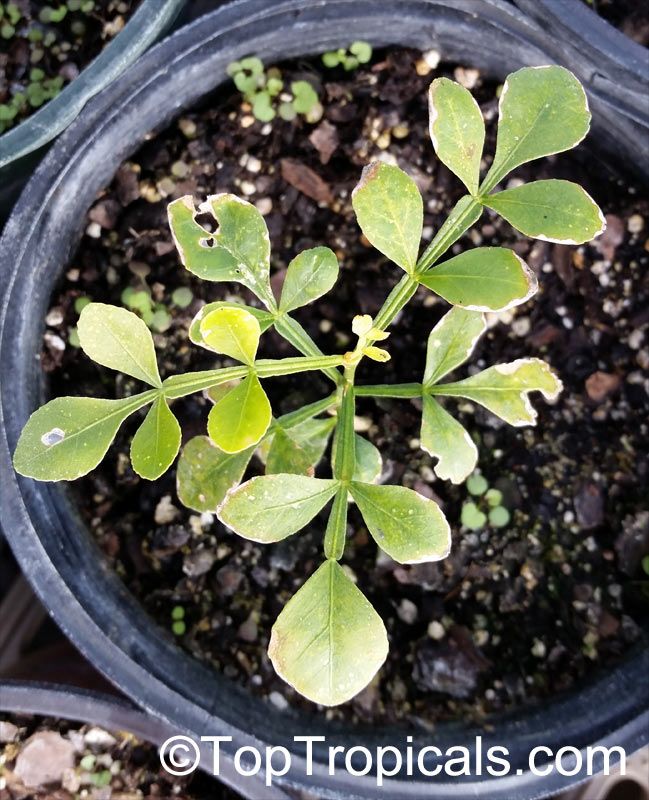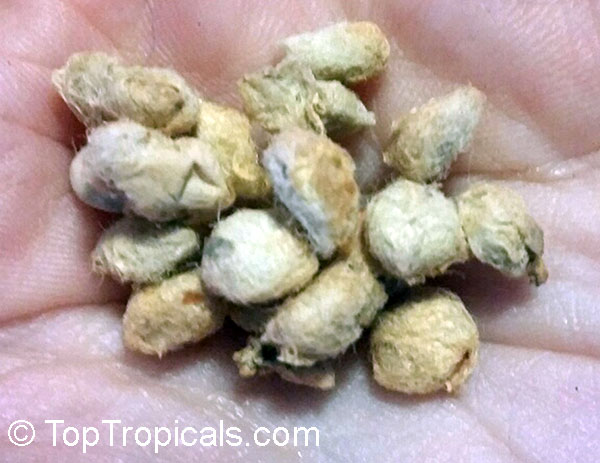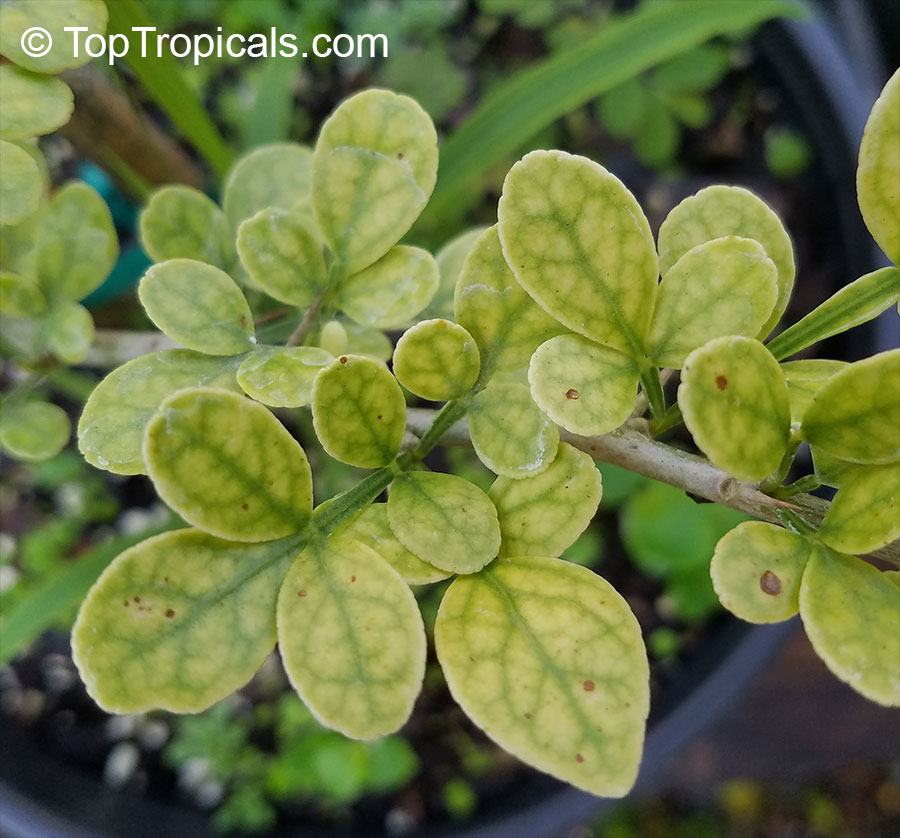Limonia acidissima, Feronia elephantum, Feronia limonia
Wood Apple, Bel Fruit, Elephant Apple, Monkey Fruit, Curd Fruit, Bela, Billin, KathFamily: Rutaceae
Origin: Indomalaya








This slow growing tree is native in the Indomalaya ecozone to Bangladesh, India, Pakistan, Sri Lanka, and in Indochinese ecoregion east to Java and the Malesia ecoregion. In some parts of the world, this fruit is called elephant apple because it's a favorite food of elephants, while in other areas, it gets the name wood apple because of its hard wooden shell. It is actually considered sacred by Hindus, and is widely cultivated and eaten in India.
It is erect, with a few upward-reaching branches bending outward near the summit where they are subdivided into slender branchlets drooping at the tips. It has rough, spiny bark. It can be grown in a pot as a small specimen or used as a bonsai. The leaves have a citrus-scent when crushed.
The edible fruit is technically a berry 2-3" in diameter, sweet and sour. It has a very hard rind which can be difficult to crack open, and contains sticky brown pulp and small white seeds. The fruit looks similar in appearance to fruit of Bael (Aegle marmelos).
The pulp can be eaten raw, but it is popularly scooped out and frozen, or made into jam. It can also be mixed with coconut milk for a delicious, health beverage, or frozen into ice cream. The ripe bel fruit is sweet and can also be used for making a tasty drink known as wood apple milk. The ripe fruit is consumed as custard with sugar or honey in certain cultures. The raw bel fruit is sour to taste and is used to make chutney, while the leaves of the bel fruit tree are used as salad ingredients. The vast array of health benefits that are attributed to wood apples are mainly due to their nutrients, vitamins, and organic compounds, including their tannins, calcium, phosphorous, fiber, protein, and iron.
It is a commonly known herb in Indian system of medicine to treat various disorders including diabetes. The fruit pulp extract is used in folk medicine against gastric ulcers.
Bel fruit is great for digestion, and a remedy for digestive disorders. The trunk and branches of bel trees contain a gum-like substance called Feronia Gum. Bel leaves contain tannin, which is known to reduce inflammation, and has antifungal and antiparisitic activities.
Bel fruit juice mixed with warm water and sugar is used for blood purification and the removal of toxins. It is effective for ear aches. High level of vitamin C in Bel fruit increases the strength and potency of the immune system.
The Feronia gum, contained in the trunk and branches of the bel tree, counteracts diabetes by reducing the severity of the condition and helps to manage the flow, secretion, and balance of sugars in the bloodstream. Leaves of the Bel fruit tree supposedly help people avoid chronic or recurring colds and related respiratory conditions. They also help in curing sore throat and treating chronic cough due to its function as an expectorant. The fruit is used as an energy food thanks to its high protein content.
Considering the detoxifying powers of wood apples, the kidney and liver can be protected if the correct organic compounds from wood apples are kept at healthy levels.
Liver Health: As a good source of beta-carotene, wood apples also cure liver problems. They contain thiamine and riboflavin, both of which are known as liver health boosters, this fruit also functions as an ingredient in cardiac tonics.
Similar plants:
- Atalantia monophylla, Limonia monophylla (Indian Atalantia, Wild Lime )
- Glycosmis pentaphylla, Limonia pentaphylla (Ash sheora, Orangeberry, Rum Berry, Gin Berry)
- Naringi crenulata, Hesperethusa crenulata, Limonia crenulata (Nuramaram)
- Swinglea glutinosa, Aegle decandra, Limonia glutinosa (Glutinous swinglea, Tabog)

